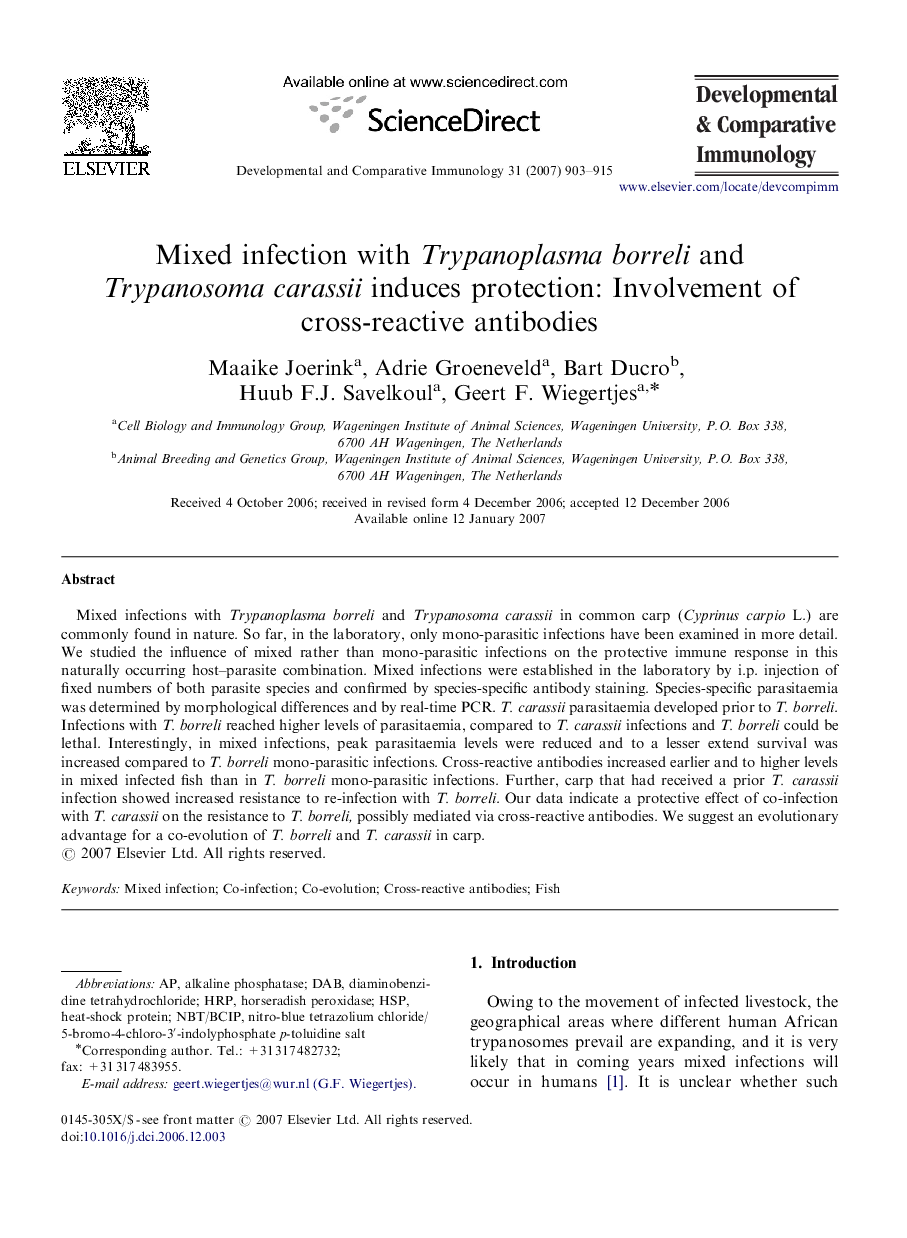| Article ID | Journal | Published Year | Pages | File Type |
|---|---|---|---|---|
| 2430204 | Developmental & Comparative Immunology | 2007 | 13 Pages |
Mixed infections with Trypanoplasma borreli and Trypanosoma carassii in common carp (Cyprinus carpio L.) are commonly found in nature. So far, in the laboratory, only mono-parasitic infections have been examined in more detail. We studied the influence of mixed rather than mono-parasitic infections on the protective immune response in this naturally occurring host–parasite combination. Mixed infections were established in the laboratory by i.p. injection of fixed numbers of both parasite species and confirmed by species-specific antibody staining. Species-specific parasitaemia was determined by morphological differences and by real-time PCR. T. carassii parasitaemia developed prior to T. borreli. Infections with T. borreli reached higher levels of parasitaemia, compared to T. carassii infections and T. borreli could be lethal. Interestingly, in mixed infections, peak parasitaemia levels were reduced and to a lesser extend survival was increased compared to T. borreli mono-parasitic infections. Cross-reactive antibodies increased earlier and to higher levels in mixed infected fish than in T. borreli mono-parasitic infections. Further, carp that had received a prior T. carassii infection showed increased resistance to re-infection with T. borreli. Our data indicate a protective effect of co-infection with T. carassii on the resistance to T. borreli, possibly mediated via cross-reactive antibodies. We suggest an evolutionary advantage for a co-evolution of T. borreli and T. carassii in carp.
